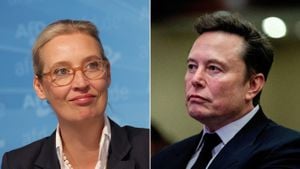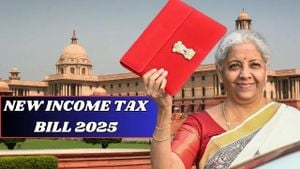The European Union (EU) has raised significant concerns about recent negotiations between the United States and Russia concerning Ukraine, emphasizing the pivotal role of both Ukraine and Europe at the negotiation table. EU High Representative for Foreign Affairs and Security Policy Kaja Kallas has been particularly vocal about the necessity of including Jordan and the European Union to any successful peace agreement. "Any agreement concluded without us will fail, because Europe and Ukraine are needed to implement this agreement," Kallas remarked, indicating her strong belief in the collaborative need for peace efforts.
Reported by Censor.NET, she highlighted the dangers of what she described as appeasement: "This is an unfair deal... it simply will not work. It will not stop the killings. It will not stop the war." Kallas outlined her perspective, drawing parallels from history to underline the gravity of the situation Ukraine currently faces, likening it to the events leading up to World War II, where support for besieged nations was deemed imperative.
Compounding tensions, information surfaced about U.S. President Donald Trump's phone calls with Russian President Vladimir Putin, which sparked alarm among European leaders who felt left out as discussions commenced without their involvement. Trump’s administration indicated intentions to negotiate terms less favorable to Ukraine and Europe, with Defense Secretary Pete Hegseth asserting, "it was unrealistic for Ukraine to return to pre-2014 borders" as part of any peace settlement.
Andrii Sybiha, Ukraine’s Foreign Minister, affirmed, "Nothing can be discussed on Ukraine without Ukraine or on Europe without Europe." This sentiment reflects Ukraine's increasing unease about potentially being sidelined from discussions about its future. The urgency and importance of including European representatives were echoed by other leaders, including German Chancellor Olaf Scholz and Foreign Minister Annalena Baerbock, both stressing the need for inclusive negotiations.
Baerbock pointed out, "We can’t have talks without involving Ukraine. Peace in Europe is at stake," underscoring the high stakes involved. European officials, grappling with the fallout from Trump's unilateral engagements with Russia, have prepared statements emphasizing their insistence on remaining integral to negotiation processes involving Ukraine.
Kallas openly criticized the concessions made to Russia, questioning the effectiveness of such actions: "Why are we giving them (Russia) everything they want even before the negotiations have been started?" Her sentiment resonates not only within the EU but also throughout military and policy circles where past instances of appeasement have been analyzed.
Further compounding this complex situation, non-EU members have also begun weighing in on the conflict. Hungary's Prime Minister Viktor Orban, known for his affinity toward Trump's administration, viewed the EU’s panic as misplaced, stating, "You can’t request a seat at the negotiating table. You have to earn it!" This remark captures the intersection of differing political ideologies among European leaders.
Germany's Defense Minister Boris Pistorius shared similar concerns, remarking, "It would have been more effective to discuss Ukraine’s possible NATO membership or territorial integrity at the negotiating table, rather than prematurely ruling it out." This sets the stage for heated discussions as European leaders grapple with the ramifications of U.S. moves and strive to retain their influence over the negotiation process.
To mitigate existing tensions, NATO officials have emphasized the need for open dialogue within the alliance, acknowledging the weight of statements from both Trump and Hegseth concerning the necessity of finding peaceful resolutions. Various EU leaders stood firm, asserting, "There is no option to not be at the table, because we are very important in the actual implementation of those security guarantees," reinforcing their call for participation.
While the political scenario continues to evolve, the multifaceted relationship—combined with historical lessons—between Europe, Ukraine, and the United States remains under scrutiny as leaders strive to avoid repeating the blunders of the past. Kallas’s admonition against capitulation resonates deeply, representing the shared determination among EU members to prevent historical mistakes from finding repetition.



